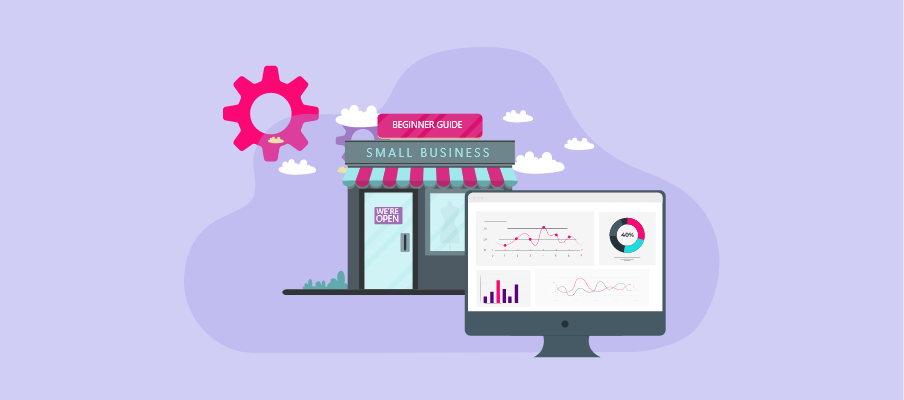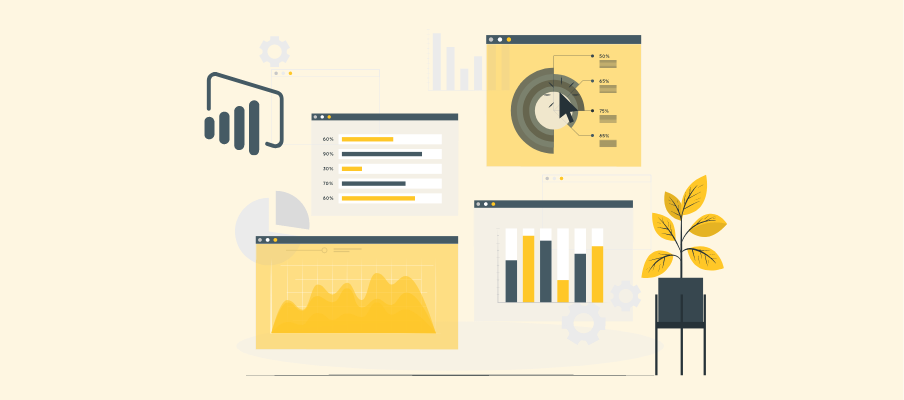AI and Machine Learning: These technologies help detect patterns, anticipate errors, and suggest categorizations to maintain accurate financial records.
Why Automated Bookkeeping Is Essential for Small Business Owners

Running a small business is no easy feat. Juggling product development, customer service, and marketing initiatives can make bookkeeping an overwhelming task. Manual processes, prone to errors and time-consuming details, can drain precious resources and destabilize your business's financial foundation.
Enter automated bookkeeping—a modern solution designed to simplify and streamline financial management for small businesses. This powerful tool combines technology and efficiency, enabling owners to focus on growth rather than getting bogged down in spreadsheets and receipts.
This article explores what automated bookkeeping is, its benefits, and why it’s a game-changer for small business owners today.
What Is Automated Bookkeeping?
Automated bookkeeping refers to using technology, such as AI-powered software and cloud-based systems, to manage financial records, transactions, and reporting. These solutions automate manual tasks like invoice generation, transaction tracking, categorization, and reconciliation.
Key Features of Automated Bookkeeping Tools
Cloud-Based Systems: Accessibility from any device ensures that business owners can manage finances on the go.
Integrations: Seamlessly integrates with tools like CRMs, payroll systems, and inventory management software for a unified approach.
Automation vs. Manual Processes
Benefits of Automated Bookkeeping for Small Businesses
Time Savings
Automation eliminates repetitive tasks like data entry and bank reconciliations, freeing up several hours a week that can be invested in growing your business. With automated systems, you can set recurring tasks like invoice creation on autopilot.
Accuracy and Error Reduction
Human errors during manual bookkeeping can lead to misreported numbers, compliance issues, or even financial loss. Automated bookkeeping software uses AI to cross-check entries, reducing errors significantly and maintaining consistency in financial records.
Cost Efficiency
Hiring a full-time accounting professional can be costly. Automated bookkeeping provides a cost-effective alternative by reducing dependency on manual labor while delivering greater speed and accuracy. Additionally, many tools offer tiered pricing based on your business's size, making them scalable and budget-friendly.
Real-Time Financial Insights
Gone are the days of waiting for end-of-month reconciliations. With automated bookkeeping, you gain access to real-time financial data, empowering you to make informed decisions quickly. Live dashboards and analytics offer an overview of expenses, cash flow, and revenue whenever you need them.
Scalability
As your small business grows, so do the complexities of managing your finances. Automated systems are designed to scale with you, seamlessly accommodating more data, users, and integrations without requiring a significant overhaul.
Compliance and Tax Preparation
Automated bookkeeping tools simplify tax filing by organizing and categorizing expenses throughout the year. Many tools also update with real-time tax law changes and offer detailed reports, ensuring adherence to regulations and reducing stress during tax season.
Common Misconceptions About Automated Bookkeeping
Automated bookkeeping is a powerful tool for businesses, but some misconceptions can discourage its use. Clearing up these misunderstandings is key to maximizing its benefits and gaining confidence in the technology.
Automated Bookkeeping Replaces Accountants
While it streamlines many tasks, automated bookkeeping tools do not eliminate the need for accountants. Instead, they complement accountants by handling repetitive tasks, allowing professionals to focus on strategic advice and financial planning.
It’s Too Complicated to Set Up
Many believe that automated bookkeeping systems are difficult to implement, but modern tools are designed with user-friendly interfaces and step-by-step guidance, ensuring a straightforward onboarding process.
Automation Leads to Errors
Some fear that relying on automation increases the chances of mistakes. On the contrary, these systems are built to reduce human errors, offering greater accuracy and consistency in data management.
It’s Only for Large Businesses
Small businesses often assume that automated bookkeeping is too expensive or unnecessary. However, there are scalable options available for businesses of all sizes, making it accessible for startups and small enterprises alike.
Data Security is a Concern
A common worry is whether financial data is safe with automated systems. Most platforms use advanced encryption and security protocols to protect sensitive information, often making them more secure than traditional methods.
Key Features to Look for in Automated Bookkeeping Tools
When selecting an automated bookkeeping tool, keep these features in mind to ensure it aligns with your business needs:
User-Friendly Interface: Opt for tools that simplify complex processes and are easy to learn.
Integrations: Ensure compatibility with your existing tools, including CRMs, payroll systems, and e-commerce platforms.
Customizable Reports: Access tailored reports for cash flow, tax filings, and even projections to support decision-making.
Strong Security Measures: Look for two-factor authentication, encryption, and daily backups to protect sensitive data.
Customer Support: Responsive support channels can make all the difference during setup and troubleshooting.
Real-Life Success Stories
Consider Jane, the owner of a small flower business. Jane used to spend hours every week manually entering invoices and expenses. After switching to an AI-powered bookkeeping tool, she saved 20 hours per month, which she reinvested into growing her business and improving customer experience.
Another example is a CPA firm that implemented automated bookkeeping solutions for its clients. This firm cut its processing time by 40%, reduced client errors by 25%, and improved overall customer satisfaction thanks to faster, more accurate services.
The Future of Bookkeeping: Why Automation Is the Way Forward
Emerging technologies like AI, blockchain, and machine learning are revolutionizing the bookkeeping landscape, reshaping how businesses manage their financial data. These advanced tools are introducing features like predictive analytics, which can forecast trends and provide actionable insights, and blockchain-based transaction verification, ensuring unparalleled accuracy and security in financial records.
These innovations aren't just enhancing current bookkeeping solutions; they are laying the groundwork for a more efficient and streamlined future. Automated bookkeeping powered by these technologies reduces human error, saves time, and allows businesses to focus on strategic growth rather than manual data entry.
Businesses that embrace automated bookkeeping today position themselves to stay ahead of the curve, gaining a competitive edge in an increasingly fast-paced, digital-first market. By leveraging these tools, companies can not only adapt to changing demands but also thrive in a future driven by technology.
Final Thoughts
Automated bookkeeping is no longer a luxury—it’s a necessity for small businesses looking to optimize operations, reduce costs, and stay competitive. Whether you're starting fresh or overhauling outdated manual processes, automation offers a secure, efficient path forward.
With automated tools, you can eliminate human error, gain real-time insights into your financial health, and free up valuable time to focus on growing your business. Plus, these solutions are scalable, meaning they grow with your business needs. Say goodbye to piles of paperwork and hello to simplified workflows.
Looking to streamline your bookkeeping? Explore how automated tools can transform your finances today!




